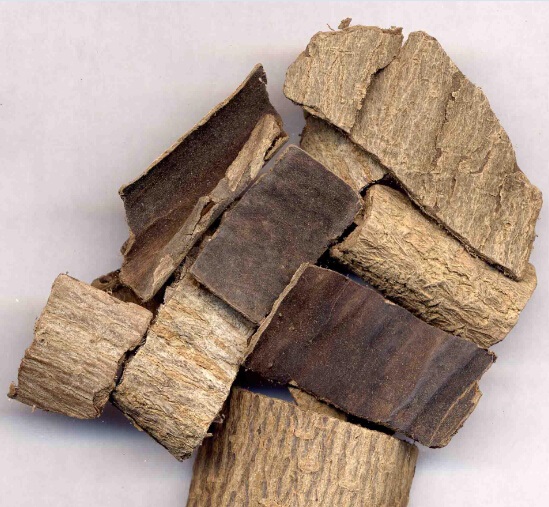The Bark of Eucommia

Eucommia is a genus of small trees now native to China, with a
fossil record that shows a much wider distribution. The single living species,
Eucommia ulmoides, is near threatened in the wild, but is widely cultivated in
China for its bark, and is highly valued in herbology such as traditional
Chinese medicine.
Modern Eucommia trees grow to about 15 m tall. The leaves are
deciduous, arranged alternately, simple ovate with an acuminate tip, 8–16 cm
(3.1–6.3 in) long, and with a serrated margin. If a leaf is torn across,
strands of latex exude from the leaf veins and solidify into rubber and hold
the two parts of the leaf together. It flowers from March to May with the
flowers being inconspicuous, small, and greenish. The fruits ripen between June
and November and are a winged samara with one seed, very similar to an elm
samara in appearance. The modern fruits are 2–3 cm (0.79–1.18 in) long and 1–2
cm (0.39–0.79 in) broad, while fruits of the extinct species range up to 21
millimetres (0.83 in) long.